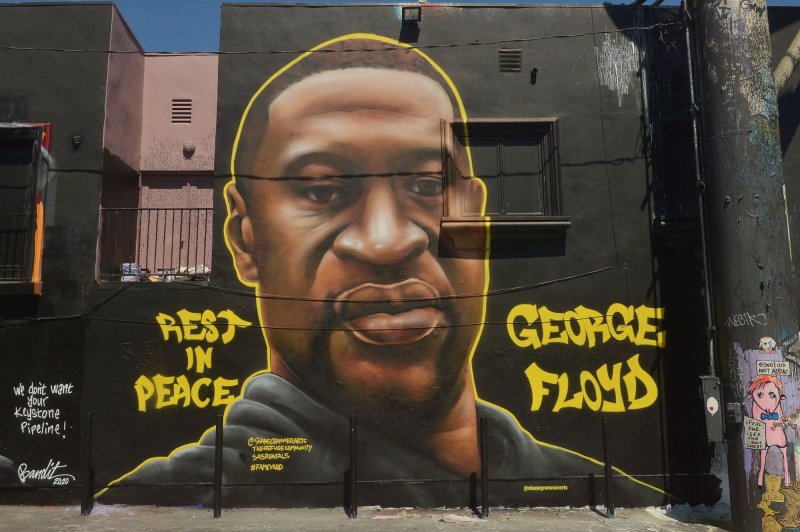Day 10 of Derek Chauvin's trial for the murder of George Floyd featured testimony from the Hennepin County medical examiner. File Photo by Jim Ruymen/UPI |
License Photo
April 9 (UPI) -- Attorneys in the Derek Chauvin murder trial in Minneapolis on Friday questioned medical experts, who appeared to offer differing views of George Floyd's cause of death.
Dr. Andrew Baker, the Hennepin County medical examiner who conducted Floyd's autopsy, said he listed the man's cause of death as "cardiopulmonary arrest complicating law enforcement subdual, restraint and neck compression."
He said he made the determination strictly by examining Floyd's body -- he intentionally didn't view any of the videos showing the arrest that led to Floyd's death beforehand.
"I did not want to bias my exam by going in with preconceived notions that might lead me down one pathway or another," Baker said in court.
Friday was the 10th day of testimony in the trial in which Chauvin, a former Minneapolis police officer, faces charges of second- and third-degree murder, and second-degree manslaughter.
The Minneapolis Police Department fired and arrested Chauvin after he was captured on video kneeling on Floyd's neck for more than 8 minutes on May 25. Floyd died after repeatedly calling for help, saying he couldn't breathe.
Baker, though, did not list asphyxiation or lack of oxygen as Floyd's cause of death, as other medical experts testified. On Thursday, pulmonologist Dr. Martin Tobin testified that the lack of oxygen from Chauvin's weight pressed on Floyd's neck damaged his brain and caused his heart to stop.
Dr. Bill Smock, the police surgeon of the Louisville Police Department, offered testimony supporting Tobin's conclusion, saying Floyd died of positional asphyxia.
And on Friday, Dr. Lindsey Thomas, who retired from the Hennepin County Medical Examiner's Office and worked with Baker, also supported asphyxia as the cause of death. She said that though Floyd's heart stopped, he didn't die of a heart attack.
"In this case, I believe the primary mechanism of death is asphyxia, or low oxygen," she told the court.
"The activities of the law enforcement officers resulted in Mr. Floyd's death, and specifically those activities were the subdual restraint and the neck compression."
Thomas said "physiologic stress" also contributed to Floyd's death.
"You start needing more oxygen in your muscles. You need to take more breaths. You need more oxygen for your heart rate because your heart is beating faster," she said.
Thomas ruled out drugs as the cause of Floyd's death because it wasn't sudden like one would experience with methamphetamine or gradual and peaceful like it is with fentanyl.
Defense attorneys are seeking to make the case that Floyd died of a heart attack, which was caused by his drug use and existing heart disease -- not from Chauvin's actions.
Demonstrators hold a sign in Los Angeles on June 14 for Breonna Taylor, a black woman who was shot by police in her home while she was sleeping. Photo by Jim Ruymen/UPI |
License Photo
















